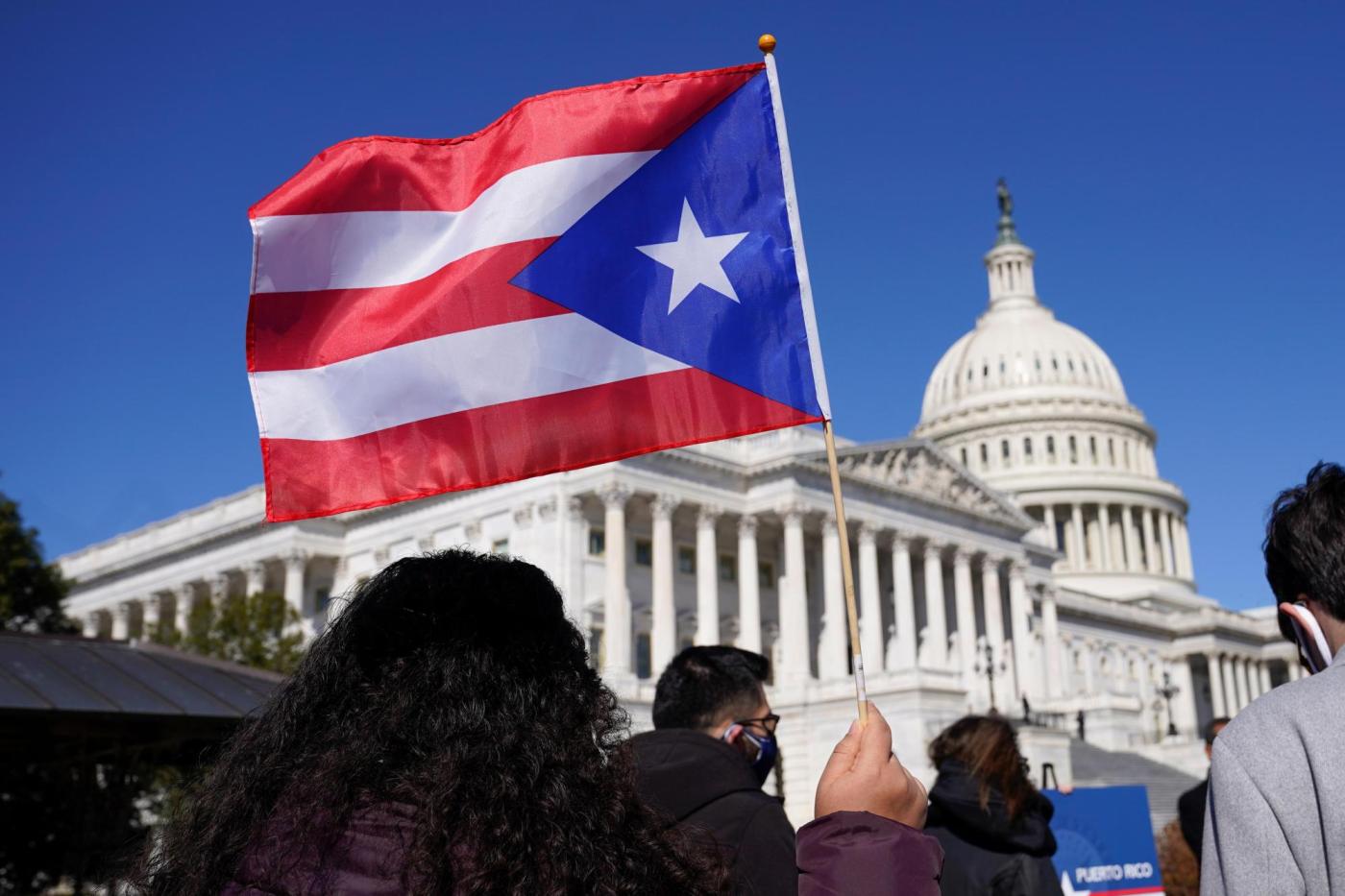
Gabriel Buelna, Enrique Buelna: It’s ‘the street,’ stupid
Donald Trump secured a surprising 43% of the Latino vote, enough to swing the election in his favor. Now, Democrats are forced to confront the fallout of their failure, which is rooted in decades of disinvestment and disregard for the diverse Latino communities. Articles, conferences and white papers have warned of these consequences for years.
Those familiar with Latino politics know that Latinos voting for Republicans is nothing new. Historically, Cuban Americans and some South American groups have formed a solid Republican voting bloc. What’s new is the recent shift among Mexican Americans, Central Americans and Puerto Ricans. Was it religion? Racism? Machismo? Misogyny? Negative experiences with government in the United States and home countries? A look at Mexico and its first female president (of Jewish descent) this year might challenge some of these assumptions. Whether this shift is permanent remains to be seen.
While some may avoid assigning blame, this is naive. Responsibility clearly lies with the Democratic Party elite, Latino national organizations, philanthropic foundations and academic elites who failed in their fundamental purpose: thinking critically. These groups did not transform the information they had into meaningful action.
The failure occurred because these groups ignored the street — the voices within communities that reject academic language about their own lives. These voices are local, multilingual and seek respect for their unique identities, not simplification. The street includes religious and secular individuals, entrepreneurs and those concerned with safety and economic security. While open to evolving narratives and identities, it resists any imposed ideology. Though it may distrust government and oppose authoritarianism, it also rejects being shamed by elites. This time, the street hit back with surprising force.
How do we move beyond this political malaise? Start by meeting Latino communities where they are — not where you wish they were. Outreach is not magic; it is about stepping off the high horse and staying grounded. Why did Trump’s message resonate with so many Latinos, while Kamala Harris’s did not?
On the street, people say Latinos were hit hard by the pandemic and its economic fallout, but the scars go deeper. They reach back to the Great Recession of 2007-2009, when Latinos were hit hardest. For many, it was a serious blow to their futures; for others, the end of the American dream. These memories linger. Latinos keep taking the hits, yet few feel anyone is truly listening. Trump appeared to speak to Latinos in a very raw and direct way, and it worked.
The Democratic Party cannot assume it will retain Latino loyalty. An actual apology to Latino voters and communities is due — not just in words, but in concrete actions. Symbolic representation without genuine change will not suffice. The Democratic Party’s mañana approach not only failed us, it brought us Trump 2.0. The stakes are high. Without immediate action, Democrats risk cementing conservative gains among Latino voters, which could strengthen candidates like JD Vance in 2028. Latino communities should demand concrete actions, such as leadership changes and significant reallocation of budgets and resources to strengthen Latino engagement.
As the old Mexican/Chicano proverb goes, “No hay mal que por bien no venga” — there is no bad from which good does not come. This offers a useful perspective. This setback can catalyze a transformation for both the Democratic Party and the diverse Latino communities that Democrats purport to represent. Honest reflection and real reforms could foster a new political landscape, one built on equity, respect and inclusion, not fear and delusion.
The answers to this Democratic Party malaise lie within the diverse Latino communities themselves. Answers will not be found in boardrooms or through costly consultants and strategists detached from everyday realities. Real solutions require getting hands-on, staying grounded and keeping close to the people on the streets. At the end of the day, one Trump supporter told us, “I’d rather have someone, imperfect as they may be, dreaming with me at a taco stand than someone who might be perfect but stands there lecturing me.” Whether a mirage or not, many more Latinos voters bought the Trump dream than the Democratic Party lecture.
Change is difficult, and challenging power structures within the Democratic Party won’t be easy. Power is drawn to itself and, once established, it tends to hold on, even to its own detriment. If Democratic Party leaders are wise, they’ll recognize that the days of manipulating Latino communities for support are over. They must realize that political power has shifted in ways we may not fully understand yet, or they risk losing even more influence. Simply choosing a few representatives to wave the Brown/Latino flag is no longer enough — they must genuinely listen to the voices on the street.
Gabriel Buelna is a faculty member in the Chicana/o Studies Department at California State University, Northridge and a practicing family and criminal law attorney. Enrique M. Buelna is a faculty member in the History Department at Cabrillo College, specializing in Chicano history. He is the author of “Chicano Communists and the Struggle for Social Justice.” They wrote this for The Fulcrum, a nonprofit, nonpartisan news platform covering efforts to fix our governing systems.


